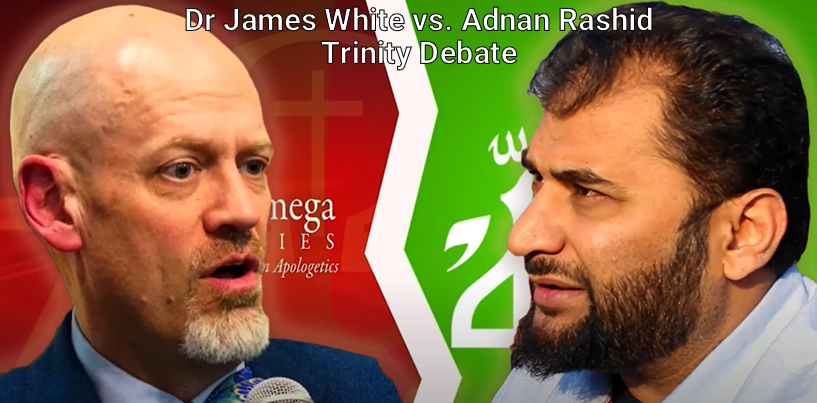Reflections on the Baptist Confession of Faith of 1689
23 Aug 14 began a perhaps unbroken, orderly, and personal journey through my favorite written confession of faith. These are my personal reflections on this beloved historic Particular Baptist confession of the Christian Faith.
NEXT-
Chapter 30. Of the Lord’s Supper. Paragraph 2: “In this ordinance Christ is not offered up to his Father, nor any real sacrifice made at all for remission of sin of the quick or dead, but only a memorial of that one offering up of himself by himself upon the cross, once for all; and a spiritual oblation of all possible praise unto God for the same. So that the popish sacrifice of the mass, as they call it, is most abominable, injurious to Christ’s own sacrifice the alone propitiation for all the sins of the elect.”
Eating this blessed ordinance no more saves someone than baptism, tithing, or any other religious work does. Like all works for the people of God, it simply reinvigorates the sanctifying heart by communicating God’s graces as all acceptable works do.
It is a religion of difference to say that Christ died to create sacraments that save us, and that Christ died to save us. Christianity has a Savior who alone saves and no boasting is even remotely possible.
Around 1445 BC, Moses was commanded to observe a meal, and to establish it as an annual observance as the new first of Hebrew calendar months. It was named Passover. It was highly symbolic. It wasn’t a Thanksgiving feast like we celebrate in the US (thanks Squanto!). Traditions added some things over time, but what specifically was commanded can be seen in Exodus 12. The certain elements were: 1) An unblemished one year old male lamb (of the sheep or goats) proportionate in size to the needs of the households, 2) unleavened bread, and 3) bitter herbs. There are also some details given on how the meat was to be prepared and consumed. They were to roast it and eat it all. Anything left over on the next morning was to be burned up entirely. They were also told to eat it, “…with your loins girded, your sandals on your feet, and your staff in your hand…in haste…” Exodus 12:11. The blood of those lambs was smeared on the doorposts of their homes as God slaughtered Egypt’s kids. Oh, what a different day it was from Joseph’s Day hundreds of years earlier! Cf. Exodus 1:8.
Fast forward to around AD30 in Jerusalem and we see Jesus eating with his disciples the night before he was arrested and crucified. On the table with Jesus (sandals on) there would have been those same certain elements. It was another symbolic meal given new meaning. Everyone there would have understood full well that it merely symbolized the shedding of Jesus’ body and blood on the Cross. The Cross, they would come to know later, was just as finished as the Exodus was. There was only one Exodus in 1445 BC and only one Calvary around AD 30. Both of the Exoduses in Egypt and Israel were one-time events.
Hebrews 10:18 reads, “Now where there is forgiveness of these things, there is no longer any offering for sin.” Forgiveness of what things? I’m glad you asked! Sins. Vv. 16-17 shows us that those in the new covenant of Christ’s once for all shed blood have their sins entirely forgiven. Hence the Lord’s table cannot be part of our forgiveness, it must be a remembrance of our forgiveness. Otherwise, we’re still in Goshen, or still in our sin. The Roman Catholic doctrine of the Eucharist is a sad denial of the Gospel of Jesus Christ since the idea was dogmatized in 1551. Prior to that date, Romanism stepped up its heresies via Aquinas’ idolatry on it. The Roman Catechism reads: “1325 “The Eucharist is the efficacious sign and sublime cause of that communion in the divine life and that unity of the People of God by which the Church is kept in being…” 1333 reads that in their priestly ceremony: “…the signs of bread and wine become, in a way surpassing understanding, the Body and Blood of Christ…” This is not biblical. Christ himself, not the elements, is the bond of the church. The bread and wine is instead not in any way transformed. It goes in mere bread and wine, is digested as such, and expelled as such. Rome has turned this blessed meal into a way to have lesser sins removed by her priests alone. It thus divides people. Jesus never intended or taught such things. He did give his life a ransom and those who come to him and believe are saved by that.
In John 6:35 (the place many err in trying to establish their ideas) Jesus clearly sets the context for the teaching on his body and blood. It is purely spiritual. He says, “I am the bread of life; he who comes to Me will not hunger, and he who believes in Me will never thirst.” The coming and the believing is the eating and the drinking. Under this, the discourse he gives that causes many to turn away about God’s sovereign election makes perfect sense. For an exposition of John 6, click here. Rome (and others adapting their error) for no good reason tries to pretend they’re just, “taking Jesus literally” here when he says, “…Take, eat; this is My body.” Matthew 26:26. By such “logic” (by which Luther similarly erred by the way) I must be Jesus’ mom. After all he did say, “For whoever does the will of My Father who is in heaven, he is My brother and sister and mother.” Matthew 12:50. I choose mom. He said “he is” my…mother. And Bob’s your uncle. No, we understand symbolism based on spiritual reality. For 1500 years they remembered one Exodus. It wasn’t a work being carried out. It was a remembrance. For nearly 2000 years now we do the same. Simple, beautiful, biblical.
In that the 1689 confession so clearly seeks to 1) unite the Baptists with others of the Protestant Faith in their day in England, 2) distance themselves from the Anabaptist sectarians and 3) differentiate their people from Rome, some say that the 1689 LBCF is outdated. Too contextualized in 17th Century English life. For an example, see the following by Pastor Shawn Wright here. I respect some of their arguments but must in many ways disagree. I think that this confession affirms practices like Sabbatarianism in ways that don’t condemn those who don’t. I also think Christians benefit from learning these things about Rome as much today as ever because Rome still teaches its theology. I do agree that later American confessions of Baptistic Faith are more easily entreated.
Much of the rest of this paragraph is rather self-explanatory. I want to close by briefly commenting on that part that says, “…nor any real sacrifice made at all for remission of sin of the quick or dead.” What’s that all about? Well, both Romanism and Mormonism (for another example) perform ceremonies for the dead to perfect the dead in their own salvation. The Mass is offered up for the dead by Romanists (Cf. CCC 1414) and the LDS church baptizes for the dead (See link here). In both instances the ceremonies are entirely unbiblical and foolish. One’s just older than the other. Obviously, the LDS idea arose long after this confession did, but I must show the relation of these two groups who both deny the Bible’s books as the sole source of infallible authority and thus end up with contradictions in just about everything.
There are many relationships between the true and all false religions when we learn to compare apples to apples in their denial of Sola Scritpura.







